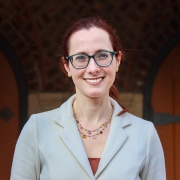Doctoral Candidate Studies Economic ‘Dynamic Game Theory’
When you want to buy a new cell phone or eat out, how do you decide which brand to purchase or which restaurant to dine in? According to Daniel Hauser, a fifth-year doctoral candidate in the Department of Economics, it has to do with motivation on the part of the business and perception on the part of the consumer. An organization must decide whether to promote strong products or defend against attacks on weak ones. The purchaser then uses that information, and data from others who have made similar decisions first, to draw a conclusion.
Parsing the business side of this equation, Hauser studies what are aptly called “reputation games,” part of the larger principle known as “dynamic game theory,” which acts as the basis for his research.
“A game [in economic terms] is just a strategic interaction between two or more people. A dynamic game is an interaction that happens multiple times,” he says. “I think about how a firm’s ability to control information can impact its ability to build a reputation.”
He’s working to understand companies’ motivation to go one direction or another, says Jesús Fernández-Villaverde, professor and graduate studies director in the Department of Economics.
“In a world where it’s easy to suppress bad information about a product, you’re not going to invest a lot in quality. Think about General Motors in the 1960s. There was no internet, there was no cable TV. There were just newspapers,” says Fernández-Villaverde. “Today, with the internet, you have a strong incentive to produce a good product because it’s difficult to hide” a bad one.
Click here to read the full article.





